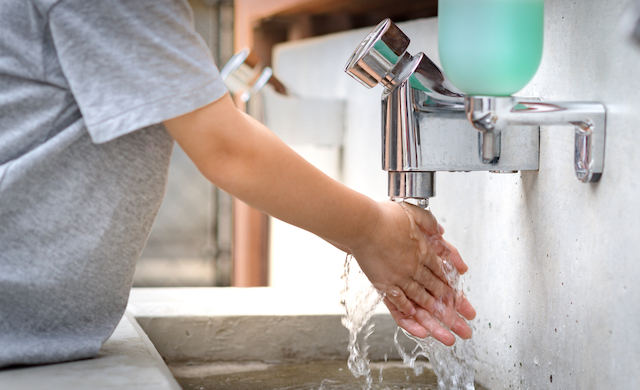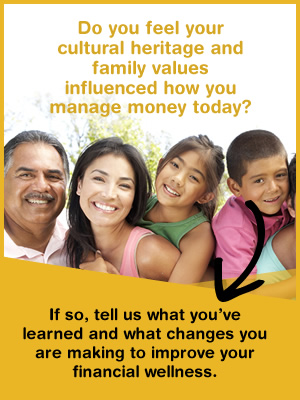
These are the most important things you should be telling your kids about coronavirus
03/17/2020 06:00AM | 3989 viewsThe classroom was abuzz with the lively chatter of elementary school students. While that wasn’t so out-of-the-ordinary, the topic of their discussion seemed to be uncharacteristically dire.
“I heard people couldn’t leave their houses,” one wide-eyed child said to their peers.
The coronavirus conversation snowballed from there. Kids had questions: what if they, too, were trapped inside their own homes? Was it possible for their dog to get infected? Did they need to buy supplies? Where would they get food if they couldn’t leave home?
And more importantly, where did their parents buy toilet paper?
Annie Barrows, a visiting children’s book author, sat back and listened. Then, something clicked.
“More than anything, I realized they just wanted to talk about it. As grown-ups, we don’t always let kids do that,” she said.
On this particular day, though, she noticed their teacher didn’t stifle the conversation. Instead, she allowed her students to tell stories about what they’d heard and ask questions about what they were unsure of. Ultimately, the teacher provided her students with a space to address their fears and anxieties while guiding the discussion with facts to dispel any misinformation.
It’s a tricky topic to navigate, especially because the nature of the virus is so unpredictable. The knowledge we do have can be ambiguous, and it seems to be constantly shifting. That said, the city’s Department of Emergency reminds us it can be especially daunting for children to take in such information without the right context or explanation.
One of the most important things a parent can do is loop their children in on the conversation, Dr. Mark Reinecke, a senior clinical psychologist at the Child Mind Institute, told SFGATE.
“It’s quite common for parents to talk about the effects on travel, meetings that are being cancelled, or concerns about the economy and what that’s going to mean,” said Dr. Reinecke. “It’s in the news on an ongoing basis. I think this probably does set a tone at home and can influence how children and adolescents feel.”
Amid nationwide school closures and cancellations of extracurricular activities, it’s also something the San Francisco Unified School District is tasked with addressing on a day-to-day basis.
“It’s important to talk with children in an age-appropriate way using the facts,” Nancy Lin Pollack, a teacher on special assignment at the district, told SFGATE. “Addressing anxieties more generally, make sure they know not to be afraid and to go to an adult they trust with any questions.”
Of course, there’s also the standard hygiene tips: encouraging your children to cough or sneeze into their elbows, avoid touching their faces and to wash their hands frequently for at least 20 seconds each time.
But what else should parents keep in mind when talking to their kids about the coronavirus? Here are a few tips we rounded up from a child psychologist, a children’s book author, as well as a school nurse and teacher from SFUSD:
Be transparent and open. “My suggestion is this: let’s talk with youngsters about what’s on the news and what they’ve heard instead of backing off from discussing it. Rather, let them bring the conversation to you,” said Dr. Reinecke.
But also admit when you don’t know something. If your child asks a question and you don’t have the answer, be honest. Tell them you’re unsure, but let them know you’ll seek out more information. “I think it’s important for parents to maintain a sense of equanimity,” said Dr. Reinecke. “If the parent is calm and doesn’t present a sense of alarm in the face of this, I think children and adolescents will pick up on that.” Kim Walker, a nurse at SFUSD, recommends sitting with your child and looking at the CDC or WHO website together. This is particularly helpful for adolescents.
Stick to the facts, and find interesting ways to address them. Pollack reminds us to start with the basics: “Coronavirus causes a disease called COVID-19 that can make people sick.” From there, “fun” facts can help provide context. “The word ‘corona’ is Latin for ‘crown,’ and if you look at coronavirus under a microscope, it looks like a crown with spiky blobs,” she said. A great visual resource for younger children is this NPR comic about coronavirus, which can also be cut and folded into a zine.
Try telling a story. It can be easy to overwhelm a child with too much information, especially when it comes to telling them how to confront the coronavirus in their everyday lives. Barrows, an author known for the bestselling “Ivy & Bean” series, recommends breaking down information into small parts and even including a bit of humor.
“I think it's always fun to talk to kids about what the solution is, and then go to the extreme with them,” said Barrows. “So, okay, you're supposed to wash your hands all the time. Well, is it sensible to go sit in the bathtub for the next 3 months? Laugh with them and say ‘Haha, no it's not sensible.’ To be sensible, you’re going to be out in the world playing and being a kid. But when you think about it, try to wash your hands more than usual.”
Create a secure environment. In addition to modeling a sense of confidence, Dr. Reinecke recommends sticking to a predictable routine — especially in the event of a quarantine — as well as maintaining an affectionate and nurturing environment at home.
Validate their fears. Listening and responding with phrases like, “That sounds really scary, I can see how worried you are” can go a long way, according to Pollack. Barrows adds that the priority for parents should be making things seem manageable to children. “There are ways to create narratives that can make kids feel like they have some power over the situation.” Additionally, check in on them if you notice signs of distress or anxiety. To that end…
Monitor their media. “At least in our house, when we get up in the morning the first thing we do is turn on the TV and watch the morning news while we’re eating breakfast,” said Dr. Reinecke, “And what’s leading the headline is coronavirus. It’s there in front of us all the time.” It’s crucial to stay informed, but ruminating or dwelling on the epidemic too much can be counterproductive. Dr. Reinecke recommends letting your children know about events with widespread media coverage - it’s better for them to hear about it from you - but remember to take a break and turn off the TV once in a while.
Take care of yourself, too. “It’s always important to be cognizant of yourself and how you’re feeling about what’s going on,” said Walker. “Take yourself back to the facts. I even monitor my own television watching now.” Give your mind a break and partake in other pleasant, relaxing activities with your children, like reading, drawing, or playing a game. And finally...
Accept the ambiguity of the situation. “Part of what we have to do and what we want to do with youngsters is to help them to cope with life in a world where unpredictable and potentially dangerous things happen. This is part of life,” said Dr. Reinecke. “Try to remind your kids: All epidemics pass. Natural disasters pass. And this will too. So we’ll get through it, but we just want to be calm and supportive of one another as we move through it together.”
Amanda Bartlett is an SFGATE associate digital reporter. Email: amanda.bartlett@sfgate.com | Twitter: @bybartlett











Post your Comment
Please login or sign up to comment
Comments